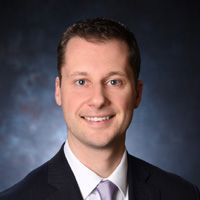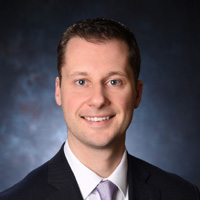Money Problems That Come with Financially Successful Careers
For people like doctors, lawyers and engineers, success takes time ... and sacrifices along the way. Once you finally make it, you probably have the urge to start living large, but that could be a mistake.


Profit and prosper with the best of Kiplinger's advice on investing, taxes, retirement, personal finance and much more. Delivered daily. Enter your email in the box and click Sign Me Up.
You are now subscribed
Your newsletter sign-up was successful
Want to add more newsletters?

Delivered daily
Kiplinger Today
Profit and prosper with the best of Kiplinger's advice on investing, taxes, retirement, personal finance and much more delivered daily. Smart money moves start here.

Sent five days a week
Kiplinger A Step Ahead
Get practical help to make better financial decisions in your everyday life, from spending to savings on top deals.

Delivered daily
Kiplinger Closing Bell
Get today's biggest financial and investing headlines delivered to your inbox every day the U.S. stock market is open.

Sent twice a week
Kiplinger Adviser Intel
Financial pros across the country share best practices and fresh tactics to preserve and grow your wealth.

Delivered weekly
Kiplinger Tax Tips
Trim your federal and state tax bills with practical tax-planning and tax-cutting strategies.

Sent twice a week
Kiplinger Retirement Tips
Your twice-a-week guide to planning and enjoying a financially secure and richly rewarding retirement

Sent bimonthly.
Kiplinger Adviser Angle
Insights for advisers, wealth managers and other financial professionals.

Sent twice a week
Kiplinger Investing Weekly
Your twice-a-week roundup of promising stocks, funds, companies and industries you should consider, ones you should avoid, and why.

Sent weekly for six weeks
Kiplinger Invest for Retirement
Your step-by-step six-part series on how to invest for retirement, from devising a successful strategy to exactly which investments to choose.
Professions that take a long time to develop into fruitful careers come with unique financial challenges.
For example, doctors sometimes make bad decisions with money. Part of the issue is they get caught in a perfect storm of circumstances that lead to poor financial choices.
In my experience, financial advisers can be just as inattentive with their personal money as other professionals. Let me first explain the challenges many professionals face, and how they relate to financial advisers.
From just $107.88 $24.99 for Kiplinger Personal Finance
Become a smarter, better informed investor. Subscribe from just $107.88 $24.99, plus get up to 4 Special Issues

Sign up for Kiplinger’s Free Newsletters
Profit and prosper with the best of expert advice on investing, taxes, retirement, personal finance and more - straight to your e-mail.
Profit and prosper with the best of expert advice - straight to your e-mail.
Doctors and Money
While it is true that doctors tend to make very healthy incomes, they usually have a long road to get to that point. That road is filled with medical schools and the corresponding debt they accumulate in order to start practicing medicine. Once they finally break free from the shackles of medical school and residency it’s time to start living the doctor lifestyle, they so often think.
There is a presumption that doctors make large incomes, which can be true. But often they are hampered by hefty student loan payments. They may not earn as much as their paychecks would lead you to believe. That doesn’t matter to many M.D.s; they put in a great deal of time and effort and they feel it is time to start enjoying the fruits of their labor.
Have you ever seen a surgeon driving a Honda Civic? Didn’t think so. When they pull up to the hospital or medical offices, they are usually driving some type of expensive luxury car. Their kids often go to private schools. They live in nicer neighborhoods.
Although doctors are very intelligent when it comes to their field of medicine, being an expert in medicine does not translate to being an expert in personal finances. There is a false equivalence that since someone is an expert at one thing — medicine, law, engineering — they are also an expert in a totally unrelated thing, money.
Other Professionals and Financial Advisers
Many different professionals follow a similar path to doctors. Lawyers go through years of school, and it takes even more years to develop a practice or grow their careers within an established firm. They are also experts in their field, but that doesn’t always transfer over into handling their money.
That’s the challenge with high-earning professionals. Being intelligent and making a lot of money does not mean you know what to do with it when you have it. These careers also take more time to start bearing fruit. That extra time puts the professional behind on their savings goals, which creates an even greater need to be really good savers when they start making money.
The same can be said about your financial advisers.
It takes many years to hone your craft and become an expert in the field of personal finance. It also takes many years to build a profitable practice. During those years, there is a lot of delayed gratification and spending. Once an adviser’s income starts to grow, it is easy to fall into the trap of buying into the lifestyle one has always wanted for themselves. Advisers are usually always around money, given the nature of the job. That also skews one’s perception of the world. If their clients all have million-dollar portfolios, live in nice houses and drive fancy cars, that might begin to seem normal to them.
A successful financial adviser can face many of the same challenges that their clients can face. Does this make them bad financial advisers? I think it’s quite the opposite: They can relate to and better understand the challenges successful professionals face.
The Takeaway
We all hear about 20-year-old tech billionaires. They still face financial challenges, but they are a rare breed. Most people take a long time to start earning big paychecks, and there are challenges with making smart and savvy choices with those hard-earned dollars.
Whether you are a small-business owner who has grown your company one customer at a time, or a doctor who took years to go through school and training, the challenges are the same. It took a long time to get to where you are, and many of you want to celebrate the success by treating yourselves and your family. It is important to balance out the short-term spending with longer term financial goals and strategies in mind.
Find someone who has had a similar path as you but also has the knowledge and expertise to help you beyond just understanding the struggle. Professionals would be wise to find a mentor to help with career planning as well as a trusted adviser to help with financial planning.
Securities offered through LPL Financial, Member FINRA/SIPC. Investment advice offered through SFG Wealth Management, a registered investment advisor. SFG Wealth Management and Synergy Financial Group are separate entities from LPL Financial.
Profit and prosper with the best of Kiplinger's advice on investing, taxes, retirement, personal finance and much more. Delivered daily. Enter your email in the box and click Sign Me Up.

Joseph C. Conroy is a CERTIFIED FINANCIAL PLANNER™ professional who is passionate about helping his clients pursue their goals. He founded Harford Retirement Planners to provide objective advice and knowledge to his clients. By partnering with an independent broker dealer, it allows Joe to sit on the same side of the table as his clients. It is this experience, working with many individuals over the years from many backgrounds, which inspired Joe to write the book "Decades & Decisions."
-
 How to Position Investments to Minimize Taxes for Your Heirs
How to Position Investments to Minimize Taxes for Your HeirsTo minimize your heirs' tax burden, focus on aligning your investment account types and assets with your estate plan, and pay attention to the impact of RMDs.
-
 Are You 'Too Old' to Benefit From an Annuity?
Are You 'Too Old' to Benefit From an Annuity?Probably not, even if you're in your 70s or 80s, but it depends on your circumstances and the kind of annuity you're considering.
-
 Seeing Retirement Ahead? Why Your 50s Will Be So Significant
Seeing Retirement Ahead? Why Your 50s Will Be So SignificantThis is the perfect time to assess whether your retirement planning is on track and determine what steps you need to take if it's not.
-
 Don't Bury Your Kids in Taxes: How to Position Your Investments to Help Create More Wealth for Them
Don't Bury Your Kids in Taxes: How to Position Your Investments to Help Create More Wealth for ThemTo minimize your heirs' tax burden, focus on aligning your investment account types and assets with your estate plan, and pay attention to the impact of RMDs.
-
 Are You 'Too Old' to Benefit From an Annuity?
Are You 'Too Old' to Benefit From an Annuity?Probably not, even if you're in your 70s or 80s, but it depends on your circumstances and the kind of annuity you're considering.
-
 In Your 50s and Seeing Retirement in the Distance? What You Do Now Can Make a Significant Impact
In Your 50s and Seeing Retirement in the Distance? What You Do Now Can Make a Significant ImpactThis is the perfect time to assess whether your retirement planning is on track and determine what steps you need to take if it's not.
-
 Your Retirement Isn't Set in Stone, But It Can Be a Work of Art
Your Retirement Isn't Set in Stone, But It Can Be a Work of ArtSetting and forgetting your retirement plan will make it hard to cope with life's challenges. Instead, consider redrawing and refining your plan as you go.
-
 The Bear Market Protocol: 3 Strategies to Consider in a Down Market
The Bear Market Protocol: 3 Strategies to Consider in a Down MarketThe Bear Market Protocol: 3 Strategies for a Down Market From buying the dip to strategic Roth conversions, there are several ways to use a bear market to your advantage — once you get over the fear factor.
-
 For the 2% Club, the Guardrails Approach and the 4% Rule Do Not Work: Here's What Works Instead
For the 2% Club, the Guardrails Approach and the 4% Rule Do Not Work: Here's What Works InsteadFor retirees with a pension, traditional withdrawal rules could be too restrictive. You need a tailored income plan that is much more flexible and realistic.
-
 Retiring Next Year? Now Is the Time to Start Designing What Your Retirement Will Look Like
Retiring Next Year? Now Is the Time to Start Designing What Your Retirement Will Look LikeThis is when you should be shifting your focus from growing your portfolio to designing an income and tax strategy that aligns your resources with your purpose.
-
 I'm a Financial Planner: This Layered Approach for Your Retirement Money Can Help Lower Your Stress
I'm a Financial Planner: This Layered Approach for Your Retirement Money Can Help Lower Your StressTo be confident about retirement, consider building a safety net by dividing assets into distinct layers and establishing a regular review process. Here's how.